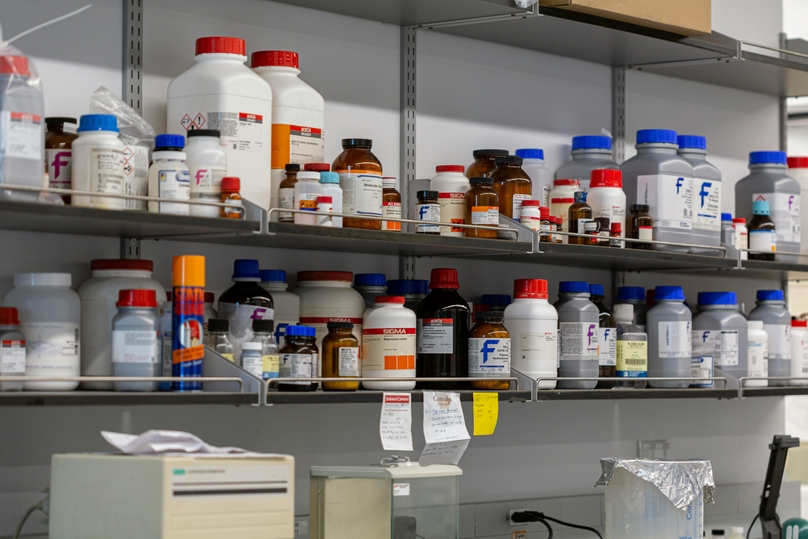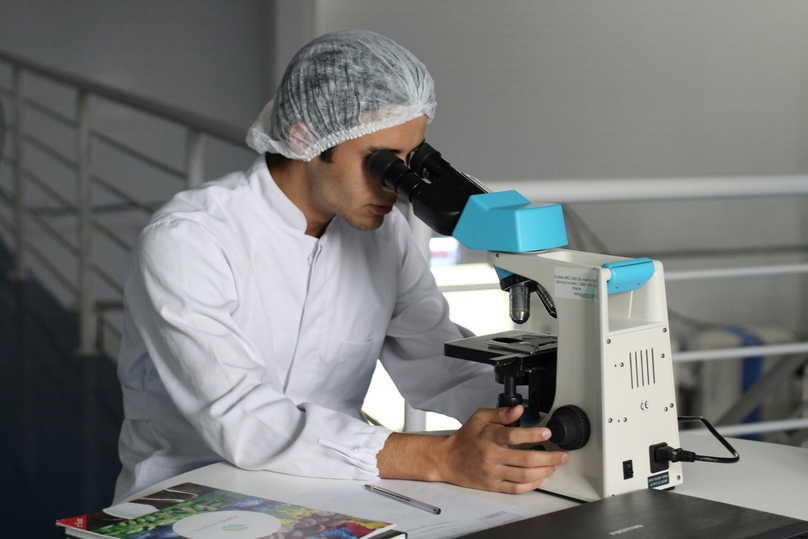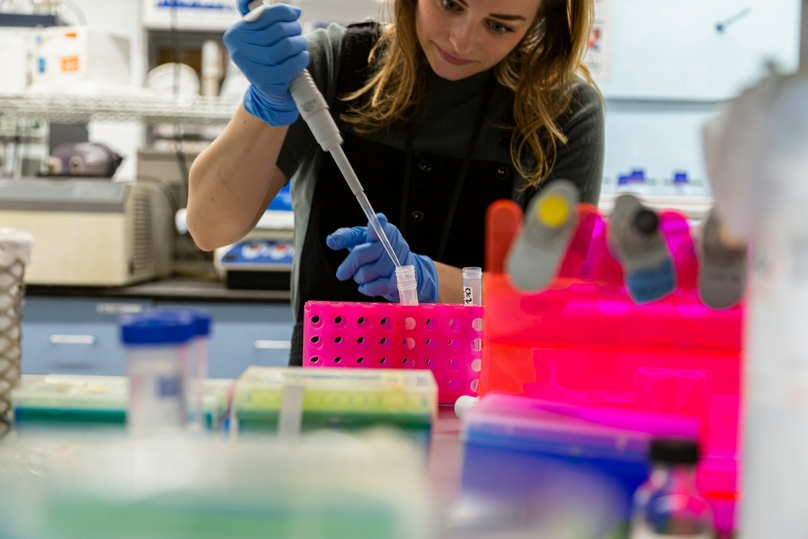1. Introduction: The New Era of Antibody Discovery
Antibody discovery is entering a new phase where data, automation, and artificial intelligence drive innovation. What once depended on manual recordkeeping now relies on connected systems that unify experimental design, analysis, and results in real time.
Modern LIMS for antibody research and AI-enabled ELN platforms go far beyond storage — they actively support discovery. An AI LIMS can interpret experiment data, highlight trends, and recommend next steps. For scientists developing monoclonal or bispecific antibodies, these insights speed up design and reduce costly trial-and-error cycles.
By merging structured data capture with intelligent automation, antibody LIMS solutions streamline antibody research from concept to validation. Teams gain visibility, traceability, and collaboration that legacy systems can’t deliver.
In this article, we’ll look at how antibody engineering and digital technologies are converging, what defines an AI-ready LIMS, and how these advancements are shaping the next generation of biologics discovery — concluding with how Genemod’s AI-powered LIMS enables that transformation.
2. The Scientific Evolution of Antibody Engineering
The field of antibody engineering has transformed dramatically — from the early days of hybridoma technology to today’s AI-assisted biologics design. Modern research now depends on connected, data-driven systems that can keep pace with scientific complexity and high-throughput experimentation.
2.1 From Hybridoma to Humanization
Early antibody discovery involved slow, manual screening of hybridoma clones and incremental optimization. The introduction of phage display and transgenic models allowed scientists to create fully human antibodies faster and with better precision. Now, synthetic libraries and in silico modeling let researchers predict binding affinity and developability before entering the lab.
Each breakthrough, however, generates exponentially more data. Managing and interpreting this information efficiently has become essential — and that’s where AI LIMS and ELN for antibody research come in. These systems connect sequences, experiments, and analytics in one place, helping teams transform complexity into clarity.
2.2 Next-Generation Modalities and the Data Challenge
Antibody innovation is expanding into bispecifics, ADCs, and nanobodies — each requiring tighter control of experimental and analytical data. Modern LIMS for antibody workflows ensure every stage, from construct design to QC, is traceable and integrated. When combined with AI-driven analysis, these platforms automate error detection, surface insights, and accelerate decision-making — ultimately streamlining antibody research and paving the way for smarter biologics development.
3. The Rise of AI in Biologics R&D
Artificial intelligence is redefining how biologics and antibody programs are designed, tested, and optimized. What once took months of trial and error can now be accelerated through predictive modeling and automated data interpretation — powered by the next generation of AI LIMS and intelligent ELN platforms.
3.1 How AI Accelerates Discovery
AI algorithms can identify sequence relationships, predict antibody binding affinities, and optimize constructs for manufacturability long before wet-lab validation. These tools analyze large data sets from past experiments, highlighting trends and recommending conditions that increase success rates. Integrated into a LIMS for antibody research, this capability enables data-driven decisions and reduces repetitive experimental work.
3.2 Integrating AI into Lab Workflows
In modern labs, AI doesn’t replace scientists — it augments them. Through AI-powered LIMS and ELN systems, researchers can automate data entry, classify assay results, and even generate experiment summaries in real time. Machine learning models continuously refine predictions as new data enters the system, creating a feedback loop that streamlines antibody research and enhances reproducibility.
By merging artificial intelligence with digital lab infrastructure, biologics R&D is becoming faster, smarter, and more collaborative. The future of antibody discovery lies not just in the molecules scientists create — but in the intelligent systems that help them create it.
4. Why Traditional LIMS Fall Short for AI-Enabled Antibody Workflows
Many laboratories still rely on legacy LIMS designed for basic sample tracking — systems that were never built to handle the complexity of modern antibody and biologics research. These outdated tools struggle with diverse data types, poor integrations, and rigid data models that can’t adapt to AI or high-throughput analytics.
In antibody development, teams generate enormous volumes of information — from sequence data and assay results to QC metrics and analytical reports. When this data lives in silos, scientists lose time reconciling files and validating results manually. Traditional LIMS lack the structure and intelligence needed to unify these datasets into actionable insights.
An AI-enabled LIMS for antibody research changes that paradigm. By connecting experimental, analytical, and computational data, it enables predictive insights, collaboration across teams, and true end-to-end traceability. For labs moving toward automation and data-driven decision-making, an AI LIMS isn’t just a convenience — it’s a necessity.
5. What an AI-Ready LIMS Looks Like
A truly AI-ready LIMS goes beyond managing data — it learns from it. The most advanced platforms combine automation, analytics, and intelligent guidance to help scientists make faster, smarter decisions.
Centralized, Context-Aware Data Architecture
Unifies antibody sequences, experiments, and QC results into one searchable structure, making it easy for AI models to analyze relationships and generate insights.
AI Lab Analysis
Automatically interprets experimental data, identifies patterns, and suggests next-step optimizations. This feature transforms raw assay data into meaningful conclusions that guide future design.
AI Agent Chatbot
A conversational assistant that retrieves data, summarizes reports, and answers workflow questions in real time — helping scientists stay focused on experimentation rather than navigation.
AI Suggestions
Provides smart recommendations during experiment setup or analysis, drawing from prior experiments and lab data to streamline antibody research and reduce manual input.
AI-Powered Workflow Automation
Automates documentation, report generation, and experiment routing. Integrated with ELN tools, it ensures full traceability while reducing repetitive work and human error.
Interoperability and Scalability
Connects seamlessly with ELN for antibody R&D, analytics software, and automation tools. Its cloud-based design scales effortlessly from small research groups to enterprise biologics teams.
Together, these features define the next era of AI LIMS — one that accelerates antibody discovery, strengthens data integrity, and creates a foundation for continuous innovation.
6. How Genemod Is Shaping the Future of AI-Driven Antibody Discovery
The future of antibody discovery will be defined by how effectively labs turn data into decisions. Genemod’s mission is to make that transformation seamless — creating an intelligent, connected foundation for modern biologics research.
As antibody programs expand into more complex biologics, data volume and cross-team collaboration are growing beyond what traditional systems can handle. Genemod’s roadmap focuses on building an AI-ready LIMS for antibody research that not only organizes information but learns from it. By combining AI-driven analysis, predictive insight, and interoperable design, Genemod is redefining how scientists design, document, and deliver discoveries.
This vision extends beyond today’s lab management. Genemod is building a digital ecosystem where AI LIMS and ELN for antibody research work in harmony — empowering teams to move from idea to validation faster than ever. The platform’s evolution will center on automation, intelligence, and collaboration, helping organizations streamline antibody research while maintaining accuracy and reproducibility at scale.
Antibody discovery is entering an era where insight outpaces experimentation. With a forward-looking focus on AI, data integrity, and connected science, Genemod is not just adapting to the future of biologics — it’s shaping it. Every discovery made with Genemod brings the scientific world one step closer to smarter, faster, and more meaningful innovation.















